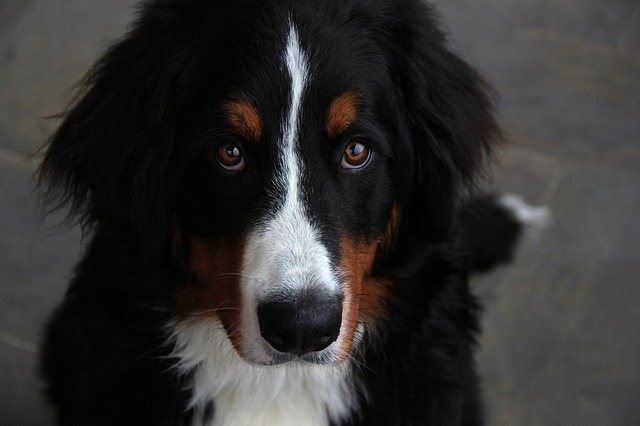You may have seen a dog – maybe your own – dragging his bum along the carpet or ground, commonly referred to as “scooting.” While some may find it gross and others funny, the fact is, it’s not funny at all; it’s a sign that there’s something wrong.
A dog’s scooting likely has to do with his anal sacs, the glands located on either sign of his rectum that secrete scents used to mark territory. If you see your pup dragging his behind on the floor, a consultation with your vet is definitely in order.
Below are 7 reasons why your pooch may be scooting, from mild irritation or a more serious issue.

1. Matted Hair
If your pooch has had a recent round of the runs or a difficult bowel movement, there may be some leftover feces matting the hairs on his hindquarters and causing pulling or itching. WebMD suggests:
“So long as the fecal contamination hasn’t led to infection, treatment can be as easy as trimming away dirty hair (be very careful to avoid cutting the skin). After that, you need to clean the area with warm water.”
2. Worms
WebMD explains that tapeworms can lead to itch-related scooting. Tapeworms occur when dogs ingest infested fleas, and pet parents can usually see the rice-sized worms in their dogs’ feces or around the anus if they’re infected.
Sure it’s repulsive, but thankfully, these unappetizing critters are easily eradicated with medication.
3. Rectal Prolapse
Too much straining or diarrhea can lead to uncomfortable rectal prolapse, when the very end of the rectum protrudes from the anus, according to WebMD. The site explains that this protrusion is visible, and treatment can include switching to a soft diet or even surgery.
4. Wounds
It’s also possible that your pooch has some sort of cut or injury on his bottom. Whether from a bite, sitting on a sharp object, or something else, discomfort from wounds on the behind may be causing your dog’s scooting.
5. Impacted Anal Glands
Anal glands naturally express themselves whenever dogs make bowel movements, and when they become impacted, the fluid can’t release. This can lead to infections and abscesses that can both hurt and itch.
In addition to scooting, signs of impaction include licking/bitting at the rear, straining to defecate, foul and/or fishy odor, redness or swelling around anus, noticeable protectiveness of the area that can even lead to aggression.
Your vet or groomer can help express your pup’s anal glands but only if he needs it, and a subsequent infection will probably require a round of antibiotics.
6. Tumors
Though uncommon according to PetMD, anal gland cancer can happen. Unfortunately, this type of cancer doesn’t usually have the best prognosis, and can often be found in the lymph nodes, as well.
With that said, there are treatment options, which may include surgery.
7. Allergies
Whether food or environmental, allergies can lead to irritation and itching in many places of the body, including the anus. A simple change of lifestyle may make all the difference, or your vet may prescribe an allergy medication.
